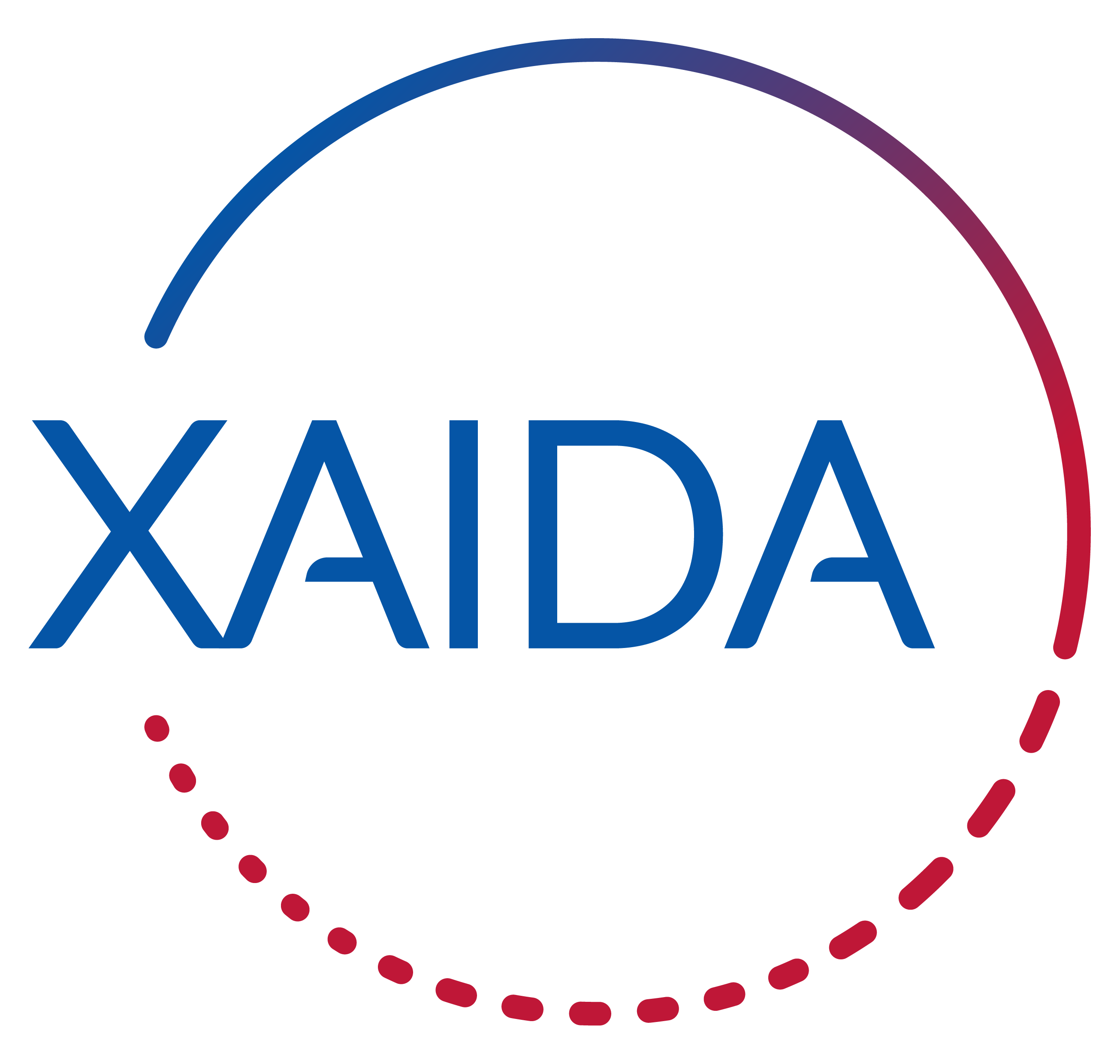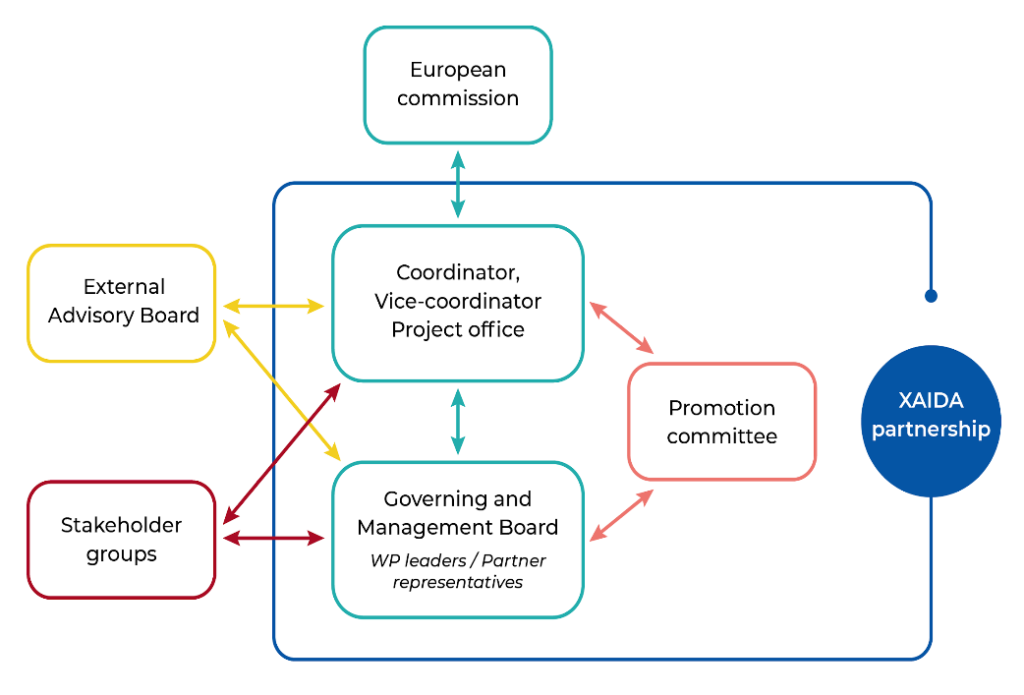The Project Office (PO) is the main day-to-day management team of XAIDA. It is composed of the scientific coordinator (Robert Vautard, CNRS-IPSL), the vice-coordinator Dim Coumou, VU) and a European Project Manager (EPM) (Manon Rousselle). The PO will be the central contact point for consortium members and external experts of the scientific advisory board regarding all legal, administrative and financial processes or related arising issues. The project office is also the central intermediary between the European Commission and the consortium by interacting as much as needed with the assigned Project Officer.
From November 1st, 2023, the Project Office is composed of the Scientific Coordinator Dim COUMOU (VU), the two vice-coordinators Pascal Yiou (IPSL-CNRS-CEA) and Vera Melinda Gálfi (VU) and Manon Rousselle (European Project Manager at CNRS).
The Governing Board (GB) is the main decision body of the consortium and is composed of the work-packages (WP) leaders and one representative of each beneficiary when the partner is not represented in the WP leads. The GB will be responsible for the adoption of all major decisions regarding scientific, financial, administrative and legal issues related to the project. Ordinary GB meetings will be held 3 times a year. The scientific coordinator will chair the GB meetings.
The External Advisory Board (EAB) is composed of 6 members, 3 of which representing academic research and 3 of which representing stakeholders. The main role of the EAB is to formulate specific recommendations to the consortium in order to enhance the overall impact of the project, both for research and for society. The research members of the EAB also advise on measures to take for a better interdisciplinary integration.
The EAB is officially composed of 3 women and 3 men:
The promotion committee is composed of 4 members elected by the GB monitors and promotes various values across the project and its outreach: gender balance, fairness in recruitment of young scientists, climate and environment friendliness, communication of the project results and climate science knowledge to communities unfamiliar with climate change issues, and potential ethics issues.



